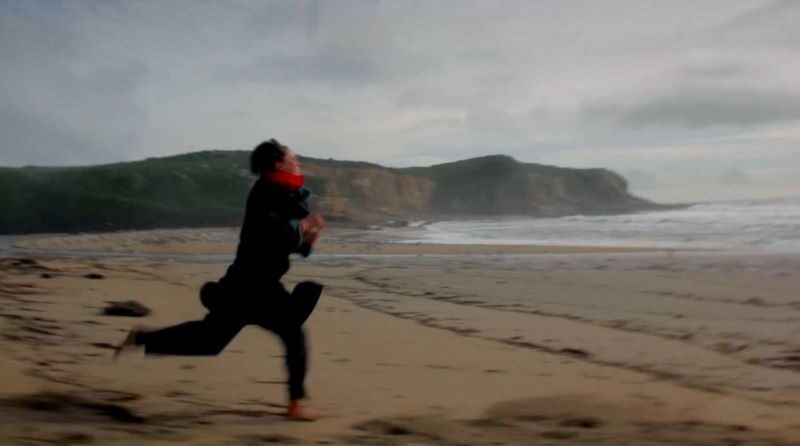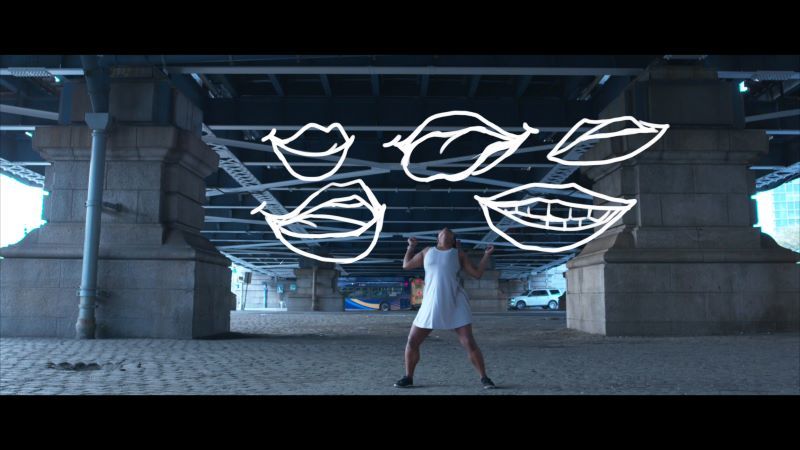Pivot Turn: Poetry in the Moment of Change
Review of Pivot Turn at Cadence: Video Poetry Festival presented by Northwest Film Forum
Written by TeenTix Newsroom Writer Lark Keteyian and edited by Teen Editor Kendall Kieras

Referring to people as bodies isn't a turn of phrase I find particularly comfortable. It feels impersonal, even spooky, to separate a person's essence from their physical body; it turns them into something inhuman. However, in the case of Pivot Turn, a series of films that don't always take place in the world we're used to, it feels appropriate. Pivot Turn ran the second night of Northwest Film Forum's Cadence: Video Poetry Festival, which transferred smoothly online in the wake of COVID-19. The films were collected around the theme of a volta, the moment of emotional change in a poem. "Moment of emotional change" might sound like a vague concept, but in practice it's fairly easy to recognize: it's a shift in tone, subject, or feeling. Sometimes you feel the volta as a subtle flip of your heart, sometimes, as the ground moving under your feet. The volta is part of what makes poetry so personal, strange, and effective. As an art form that often relies on dreamy association rather than a clear linear narrative, poetry has to envelop its audience emotionally in order to have an impact. The volta is one way for this to happen: it can bring an everyday object or place into a strange and unfamiliar light, causing the audience to experience the world in a new way.
In Pivot Turn, the voltas were explicitly physical. The shift in feeling was visually represented through movement: dance, animation, bodies of water, human bodies. Different creators interpreted the open concept of "video poetry" in very different ways. Some were visualizations of full poems (think music video for a poem); some focused on fluid physical movement organized in a dream-logic reminiscent of poetry, with very few words. All of the films, however, shared the theme of movement.

All the films also existed in a world beyond the usual, everyday one. (Where time is organized into days, months, and years; where people go places and do things and interact with other people.) This other world is often a facet of poetry. Free from the logical forward movement of time and the clear edges of objects in space, poets transport their audiences to a fluid world held together by emotion.
The worlds represented in these films are liminal: because their organizing feature is a moment of change, watching Pivot Turn places the viewer in a fluid, ever-changing world. Sometimes the liminal space is represented in physical places, as in In A Station of the Metro, which took place on subways and in train stations, both of which are spaces people move through to get to other places. Others moved between metaphysical realms, such as the invisible lake called telepathy, which seemed through its use of language and video editing, to exist in a land part way between life and death. When not moving between places, the characters in these films are in an emotional liminal state: a place of transformation. In You Are Not A Robot, poet Aaron White exists in a liminal space between human and mechanic. In Architecture of the Breath, collaged insects with human heads scuttle around and build things, sometimes wrapped in mummy-like cocoons—their bodies exist liminally, neither one thing nor the other. These voltas are not in the past. These films are living in the moment of change—they are swimming in it.

This liminal space in the midst of change has suddenly become very familiar to all of us. The world we're used to inhabiting—where time is organized into days, months, and years; where we go places, do things, and interact with people outside of our household—has experienced a sudden shift, and all of us are now swimming in the middle of this strange new world, trying to make sense of it. The Pivot Turn films themselves aren't exactly comforting; they don't romanticize the liminal space in the midst of change, but seeing your experience with the world represented in art always has the potential to be comforting. Seeing art about the same uncomfortable situation you're going through contextualizes life and reminds us that even though it feels like it's going to last forever, change is a fluid process, not a fixed point.
Pivot Turn was screened online at Cadence: Video Poetry Festival presented by Northwest Film Forum on April 16, 2020. For more information see here.
Lead photo credit: Sara Kei, Kamyar Mohsenin + Sara Kei. Image courtesy of Northwest Film Forum.
The TeenTix Newsroom is a group of teen writers led by the Teen Editorial Staff. For each review, Newsroom writers work individually with a teen editor to polish their writing for publication. The Teen Editorial Staff is made up of 6 teens who curate the review portion of the TeenTix blog. More information about the Teen Editorial Staff can be found HERE.
The TeenTix Press Corps promotes critical thinking, communication, and information literacy through criticism and journalism practice for teens. For more information about the Press Corps program see HERE.


